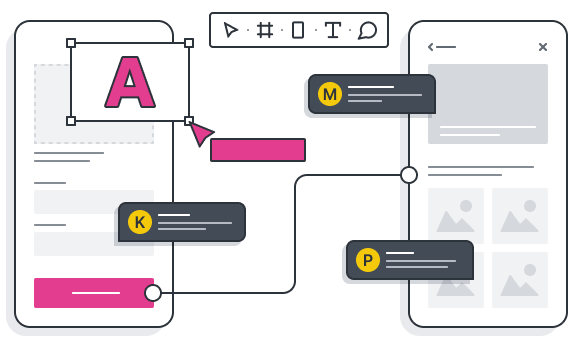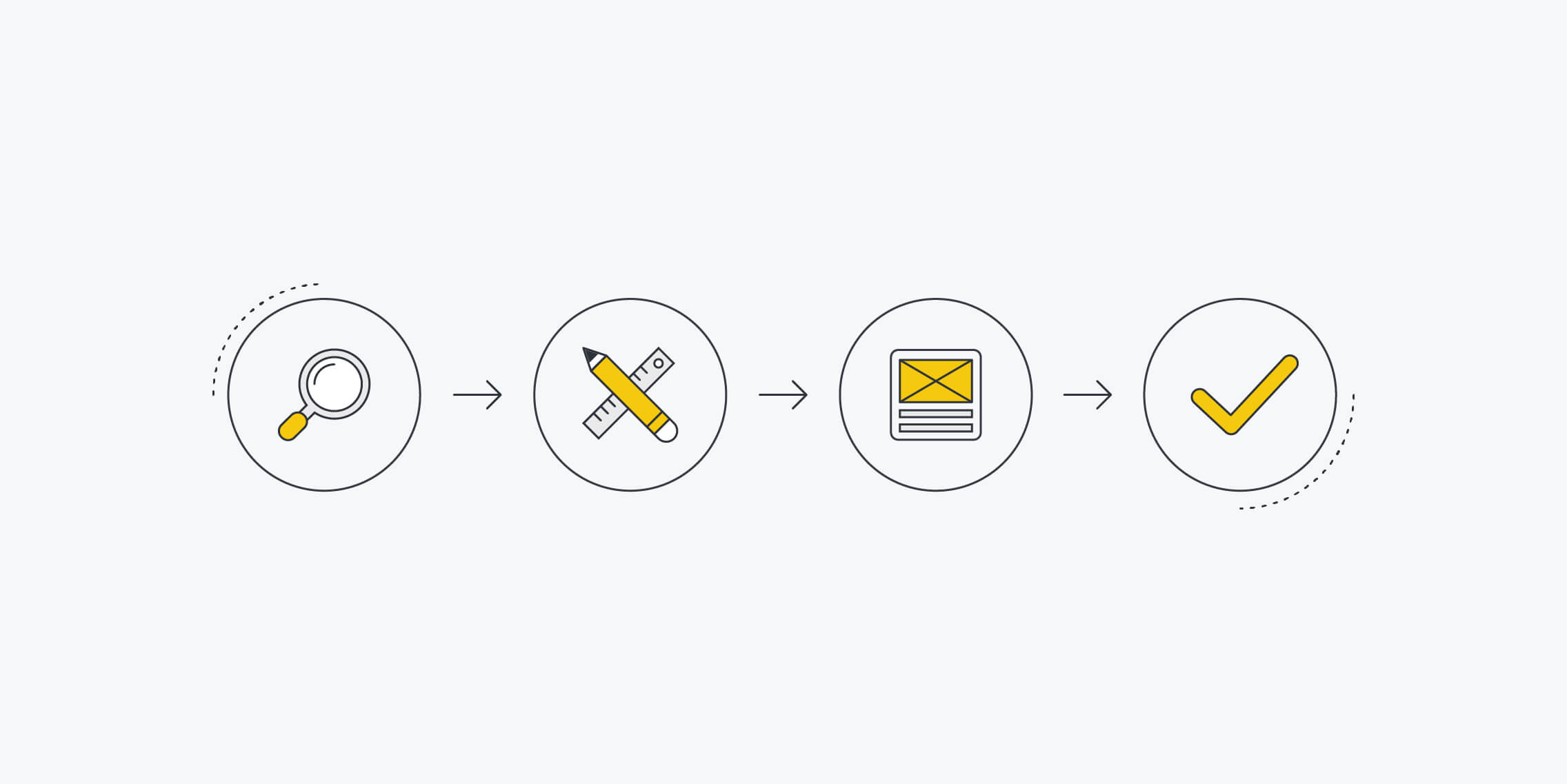There are many similarities between graphic and UX design.
Both disciplines aim to solve problems through design; both require communication with stakeholders; and both can benefit from applying principles like contrast, balance and visual hierarchy. That said, they are very different roles with different areas of responsibility.
What’s the difference between graphic design and UX design?
The role of a graphic designer is to communicate a message through beautiful, polished designs. UX designers, however, focus more on usability than aesthetics. They incorporate elements of psychology, technology and research to identify and solve problems for users.
As technology becomes more ingrained in our everyday lives, the line between graphic and digital design becomes increasingly blurred. It varies from company to company but generally, the majority of a graphic designer’s work is now digital.
This, coupled with the growing importance of UX, means many employers now expect graphic designers to assume the duties of a UX designer too.
Here are 3 reasons why UX is important for graphic designers:
1. Create more meaningful designs
UX is about more than beautiful design, it’s about functional design that helps solve a problem for users. Creating designs that not only fulfil a brief for a client but that actually improve how something works can be extremely rewarding.

Applying UX principles to graphic design can also help justify design decisions and cut out frustrating review processes. It’s easier to get buy-in from stakeholders when you can show your design is led by objective research data.
2. Develop better working relationships
Empathy is a core quality of a successful UX designer. Encouraging greater empathy within a business leads to better communication between teams and greater understanding of the collective challenges faced. Prioritising UX can unite teams behind the same goal and simplify critical business decisions. It can also lead to more cohesive teams where marketers, developers, relationship managers and sales people collaborate better as they feel their goals are aligned.

“I had worked closely with the sales, IT and digital marketing teams, so I knew about the different channels within the business. But before studying UX, I never knew how to make them work together. It’s been amazing to see how you can use UX as a unifying business goal. It benefits the customers and it benefits everyone else too,” he said.
3. Enhance your skills
The demand for UX designers has grown significantly in recent years. According to a LinkedIn report, UX design is one of the most sought-after hard skills for 2020. The need for increased digitisation of services has accelerated the need for UX and as a result graphic designers are being asked to take on more of this work.
Moving from graphic to UX design is a natural evolution for a lot of designers looking to future-proof their career.
The role of a UX designer doesn’t stop once a product is launched or updated, it’s continuous. UX designers are always looking for potential ways to innovate and iterate a product offering. In this way it can also be an attractive option for designers looking to move from freelance work into something more permanent.
Even for graphic designers who don’t want to fully transition into UX, learning the fundamentals can be a great way to enhance your skills and become a more well-rounded professional.



